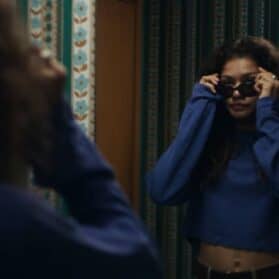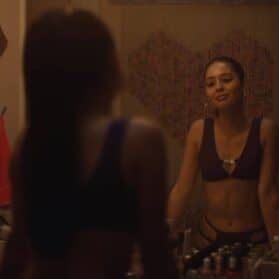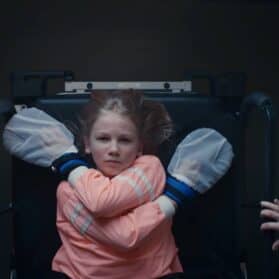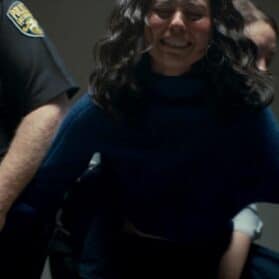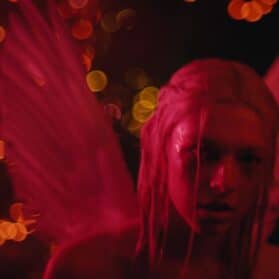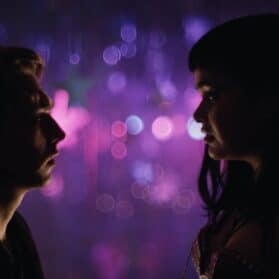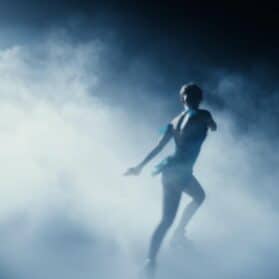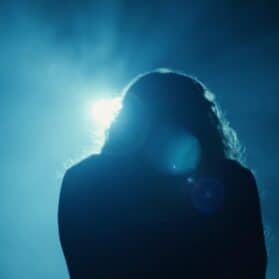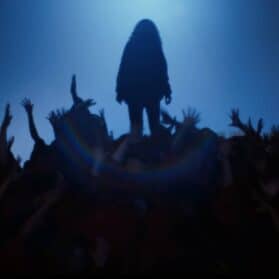Diving Deep Into ‘Euphoria’ with Creator Sam Levinson
We go in-depth on the filmmaking and themes behind this summer’s runaway hit with series creator Sam Levinson.

Euphoria broke into the culture like a thief in the night, leaving a shocked media response and a legion of enthusiastic fans (Leonardo DiCaprio and filmmaker Xavier Dolan among them) in its wake. Its inaugural season is equal parts dark suburban fantasy and painful autobiography, updating the “troubled teen” mythos for the modern age while also introducing an extraordinary level of craft to the genre. A few days after the finale aired, I spoke with writer-director Sam Levinson about the whirlwind of themes and filmmaking that went into this summer’s runaway TV hit.
A New Generation
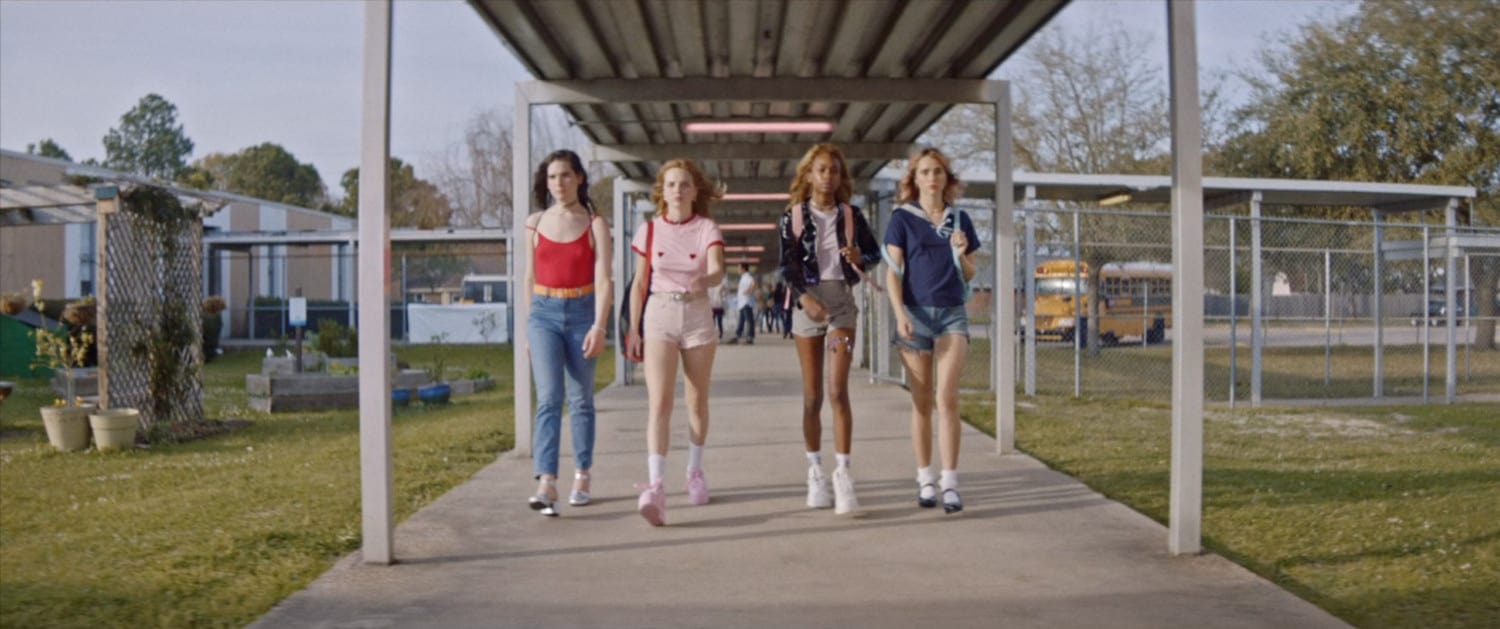
The teenagers of Euphoria have been dealt a rough hand, growing up in a political and technological landscape that is significantly more dystopian than that of, say, Everything Sucks or Stranger Things. “It’s darker. It’s more chaotic and it’s more fractured,” Levinson says, “and it’s harder to navigate because the landscape is changing at such a rapid pace that it feels like a new frontier for all of us.” Euphoria is not his first outing in the world of modern-day high school. I opened our conversation by bringing up his 2018 film, Assassination Nation, a polarizing but viscerally beautiful satire that follows a group of teen girls at the center of a massive social media hack. “It was an angry piece. It was angry at a lot of things and a lot of people,” he explains. “At the end of the day it was a satire. Which inherently distances you from the emotions of the characters. Even movies that I absolutely love with characters that I care about. If you look at Network or any kind of satire, it’s fundamentally unemotional in some ways. But I learned a lot from making that film.”
While Levinson carried over many themes and techniques from his sophomore feature, he knew that the series would have to come from a much more vulnerable place. “I wrote the pilot the week after we wrapped Assassination,” he recounts, “and it was much more personal. I’ve tried writing different iterations of it since I got clean at 19. I think it called for a certain kind of restriction, so we could take what we thought worked well [in the feature] and design something that was fundamentally about the emotions of the characters, rather than a commentary or satire.”
Euphoria also saw Levinson reteam with his cinematographer Marcell Rev and production designer Michael Grasley, both of whom brought a maximalist sheen to Assassination. The series features high-budget updates of shots from that movie as well, including a split-screen text montage and a tracking shot floating over bathroom stalls.
A World of Complexity
The series starts small and personal, introducing us to 16-year-old Rue (Zendaya) as she recovers from an overdose and navigates her addiction, as well as its effect on her mother and sister (Nika King and Storm Reid). It’s a direct adaptation of Levinson’s own teenage experience, but the pilot blossoms out from there, and by the end of the first hour we are following nearly a dozen separate characters with their own private lives and emotional arcs. One way Levinson was able to balance the ensemble was by presenting a “prologue” for each central character at the beginning of each episode.
“Part of the design of it is to allow for us to make assumptions about characters before we fully understood them,” he explains, “and then we reveal that there is a world of complexity that is unknown to everyone around them. I think that part of the experience of growing up beyond high school is understanding that every human being is growing through some shit. That they’re the way they are because of the traumas they overcame. Or didn’t.”
Trauma reverberates throughout Euphoria, functioning almost as a secondary character. Jules (Hunter Schafer), a young trans woman with a big heart, and Nate (Jacob Elordi), a quarterback and budding sociopath, are both shaped by nightmarish childhoods brought on by their parents. Even characters whose stories aren’t as dark, like Maddy (Alexa Demie), a popular cheerleader, and Kat (Barbie Ferreira), a fan-fiction prodigy, are faced with emotionally scarring experiences throughout the show. There is recurring imagery of the young characters being forcefully restrained by medical staff, the police or their own parents. “That feeling of helplessness is something that you don’t ever forget physically or emotionally,” Levinson responds. “I guess that’s where that comes from.”
But Euphoria is no pity party; similar to Assassination, these teenagers are oppressed while also wildly empowered, with the internet at their fingertips and a culture beginning to tear down an antique standard of beauty and femininity. We also get to see the bleak downside of that culture when the young characters get blackmailed with child pornography laws or have their nudes leaked.
Yet as dark as the outlook might be for the teens, perhaps no one on the show is worse off than their parents. We seldom see them, but when we do, they’re dealing with endless medical bills or opiate addictions, or they’re living out secret lives in motel rooms. They are largely useless to their kids, save for the back half of the season when a few of them step up to the plate at just the right time. Others seem to be templates for their kids’ futures. “People talk about it as if young people exist in this entirely different world than the rest of us, but it’s happening to all of us,” Levinson says of this perceived divide between parent and teen.
The systems of the previous generation, particularly the patriarchy, loom large over the events of the season. We see this expressed most explicitly in episode four, the mid-season climax set at a carnival, where Maddy and Cassie mutually agree to be the “hottest, most confident bad bitch versions of [themselves]”. When they try out these personas, Cassie is slut-shamed and Maddie is put into a literal chokehold by Nate.
Designing Euphoria
It all might seem quite hyperreal and complicated for a teen drama, but Levinson and his team had one unifying goal in mind: to put audiences front and center into the minds of these kids: “We wanted to create a world that reflects what the characters wish the world looked like. The wardrobe, the hair, the makeup.”
Levinson knew the visuals would be the most crucial element for creating a subjective reality, working closely with three other directors (Augustine Frizzell, Pippa Bianco, and Jennifer Morrison, each with an expert eye) and four cinematographers (Rev, Drew Daniels, André Chemetoff, and Adam Newport-Berra). “We drew up the guiding principles of the light and design and camera for the show,” he explains. “Because of the freewheeling nature of the narrative, there’s so much montage and it takes so many twists and turns and we jump back and forth in time. We needed some unifying principles so that it didn’t feel like we were going completely off the rails. Every shot was a camera on a dolly track. Very little handheld, no Steadicam. [Ninety percent] of the time, we shot on one lens.”
One of the most striking visual decisions of the series was to shoot it almost entirely in shallow focus, shooting wide open at a 1.6 aperture. “The idea behind that was that we wanted to create a world that felt breakable,” Levinson says. “And because of the way that lens renders space, it feels like you’re breathing with the characters and you’re with them. And that you’re not distracted by what’s going on behind them. You’re very much in their world and in their perspective.” Even the locations and space itself are shaped by the show’s reality: “I wanted to shoot on a soundstage as much as possible,” he adds. “Seventy percent was on a soundstage and all other locations we did, we completely customized them. We wanted to design the light and space from scratch so that we could design everything around the camera.”
And of course, there’s the soundtrack. Prolific musician but first-time composer Labrinth has created a sonic hurricane of a score for the first season; it’s a diverse soundscape that incorporates hip-hop and EDM elements as much as it does big brass sounds and strings. Levinson met Labrinth at a dinner party a while back, where he immediately recognized a “fearless and reckless musician” in him. “When I told him about the show, it was like, ‘I want this to sound like Yeezus, but also have a Danny Elfman feel to it,’ and I think only Lab would reply to that with, ‘That makes sense.’”
The score also utilizes Labrinth’s voice and lyrics, sometimes reflecting the inner thoughts of the characters. As far as the specifics of the process, Levinson tells me, “We never really discussed it. I would send him cuts of things, and he would just fuck around. I told him to write long, be himself, let the score take him where it takes him. If he wants to use lyrics, use lyrics. To just create a reaction to what we were creating.”
What Comes Next
Spoilers for the season finale ahead…
Euphoria ended its first season with its most abstract and experimental hour yet. The episode gives itself over entirely to music, with dreamily cut montages and dance sequences bouncing off each other until we land squarely inside of Rue’s head at her lowest moment. Painful memories of family and death fade in and out as she makes her way back to her bedroom, where she relapses; and by this point in the series, we understand completely. Levinson portrays this huge and consequential moment as a musical number, depicting addiction as a haunting mass of bodies dancing to a maxed-out version of Labrinth’s “All for Us,” enhanced by a marching band (another callback to Assassination Nation) and a singing Zendaya. It’s a massive swing, but within the universe of Euphoria, it feels exactly right.
With so many plot threads unresolved and characters unexplored, Euphoria leaves its fans both desperate for answers and entirely clueless about what might come next. After speaking to Levinson, it’s clear the second season will continue to push the themes of the series and its understanding of its many characters. Luckily, that discovery will be as fresh and exciting for him as it is for us. Of his writing process, he tells me: “I don’t really plan too much ahead when I write, because otherwise, I get kind of bored. I don’t really outline. I just kind of know where I’m going in my head, so I’ll write and discover it for myself. Or I’ll just write an entire episode and throw it out because I land on an idea and realize that’s where I should jump off from. It all has an order and design, but it also kind of doesn’t.”

